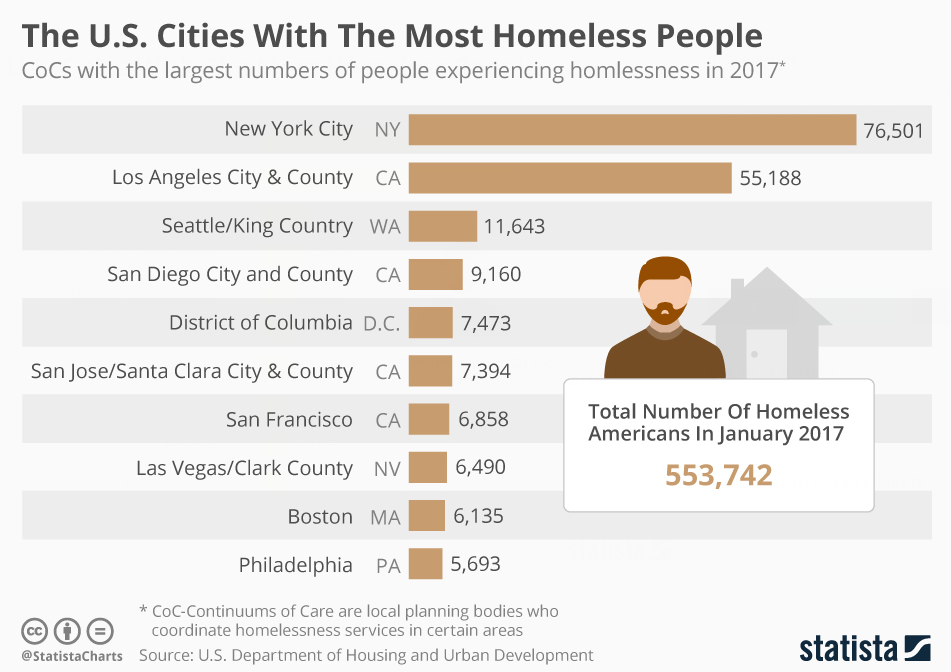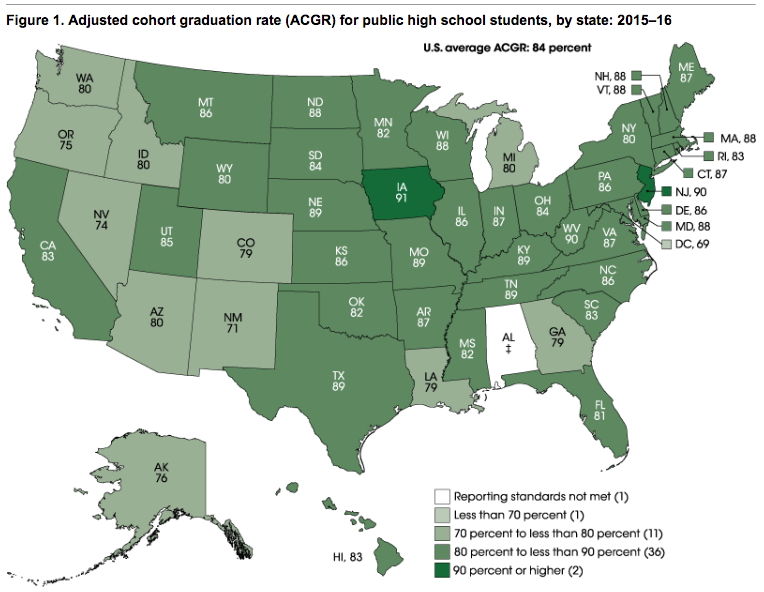I went to Seattle last year, expecting to be really impressed by the city. To say the least, it left an impression, but for many of the wrong reasons. The one thing that stood out to me the most was the homeless population. The city was crawling with homeless. Every city has their homeless, but no city, other than New York City and Los Angeles, has more homeless than Seattle.
The most disturbing part of the massive amount of homeless was that most of them were younger than me. Many of them looked in their early to mid-twenties.
The situation was so alarming that I finally Googled if Seattle had an actual homeless problem. Indeed it was worse than I realized. Just two years before, then-Mayor Ed Murray called for a state of emergency due to the problem. At that time, there were more than 10,000 homeless. Last year, the number had reached well over 11,500. The problem continues to worsen and the city looks to be treating it with the same medicine.

HOW TO STAY OUT OF POVERTY
It is a pretty well known adage of the three things to do to avoid poverty: get your high school degree, get a job, and don’t have a baby out of wedlock. When you look at the statistics, it seems that last one gets ignored since the birth-out-of-wedlock rate in the US is around 50%, with whites at 30%, Hispanics at 40%, and blacks at 70%.
On a positive note: on average, 84% of students are graduating from high school (I’m happy to say that Texas has the third highest at 89%) with Washington below the national average at 80%.

As much as the young and poor seem to ignore that last necessity on the birth rate, it appears the City of Seattle has missed the target on the middle one: getting a job.
In this video from 2015, Councilmember Mike O’Brien points out that there are several cities on the West Coast that are feeling the pinch with the homeless (as if that should be some excuse for the problem). O’Brien gives reasons for why there are so many homeless, despite the city’s thriving economy: defunding mental health, defunding addiction, and “massive” income inequality. He follows up with “specifically income inequality.”
He added that it definitely was not because the city is generous with their homeless population. He said, “I completely refute that.” Unfortunately, he was not able to refute that claim, which appears to be a pretty solid claim. But probably what he meant was that he “refuses” to believe it to be the problem.
HOW SEATTLE COMBATS POVERTY
Two and a half years later, the problem not only persists, but it worsens. So what is the city’s resolution? It wasn’t educating the homeless about how to better themselves, or getting people off the streets and into rehabs, or providing them government jobs, or putting them on a track to getting a job.
Seattle has decided to tax local companies that make at least $20 million in gross revenue, like Amazon and Starbucks. The tax is $275 per full time worker, which would raise a little less than $50 million with the objective to provide affordable housing for the homeless.
In other words, the “liberal City Council”, as The Associated Press called them, decided to punish the very ones providing jobs to the citizens of Seattle. Amazon provides 40,000 jobs in the city. For this tax purpose, that equates to $11 million. What will Seattle do when Amazon has to layoff workers? Or worse, they decide to move to another city?
MOVING OUT: Swedish author and historian, Johan Norberg, points out that’s what happened to large Swedish companies and rich Swedes in Sweden when the Social Democrats took over in the 60’s-80’s and had raised the tax rate to about 80-90%. Check out the video at about 51:00 where he points that out directly, though I recommend watching the entire presentation.
Starbucks and Amazon executives have made it known that they are not for this new tax bill, which they called “a tax on jobs.” If the City Council of Seattle was under the impression that giving free housing to homeless will somehow change the lifestyle of the homeless, they are gravely mistaken.
SEATTLE’S OBVIOUS PATH TO MORE HOMELESS
Here is what will happen, as it always does:
FIRST: Regardless of where the affordable housing project will take place, that area will quickly become devalued. It will become rundown, full of dilapidated housing structures. Crime in that area will increase. Drug addiction will continue, if not worsen. It will become an absolute money-pit for the local government. The one positive that will come from it will be that the homeless will now have an actual roof over their head (something few of them will actually appreciate).
SECOND: More homeless will enter the city because as much as Councilmember O’Brien says that the homeless population has nothing to do with the city being generous, it does play a major role. Why would someone work if you are giving them money not to? And if the cities he pointed out (LA, San Francisco, Portland) all do the same thing with the same results, then why would you follow suit?
THIRD: The middle class will take a hit. As the problem increases, more money will be required from two groups: corporations and the middle class. Whether or not the City Council decides to “only” tax the corporations, it is the middle class worker who is going to be hurt because when $11 million goes out the door and it isn’t for investment purposes, heads have to roll. It is obvious not a single member of that City Council has a clue about how a business must financially operate.
FOURTH: The blame will be on big business. It is an easy out for the council members. They are able to take the moral high ground by saying, “We did everything we could for the homeless.” While they will also say, “Shame on you, corporations, for laying off your workers.”
DO THE HOMELESS REALLY NEED HELP?
The fact is the poor do need help. The problem, however, becomes defining who the poor are. To define the poor as someone who is living on the streets is actually a disservice to the ones who have shelter but can barely afford it. The ones who work hard to make ends meet. There are many homeless who choose to be homeless. There are many homeless who are homeless due to drug addiction. The fact is homeless does not equate poor, just as poor doesn’t equate homeless.
Rest assured, I work off of Fountain View and 59 and it is disturbing and upsetting the amount of new homeless I see who are able bodied, young, living under the freeway in makeshift tents, and trying to turn windshield washing into a career.
I wish this were simply a Seattle problem, though I’m not referencing the homeless. I’m referencing the way Seattle has tried to tackle this problem. Throwing money at a problem is a national issue. O’Brien had said that hopefully the Federal Government would spend more money on the problem. O’Brien and so many people like him do not understand that we are completely overspending on poverty. In fact, we are currently spending five times the amount necessary to bring every single person who is in poverty out of it.
FIVE TIMES TOO MUCH: This comes from the following video, which is very pinpoint on how the actions taken by Seattle's city council is a national problem.
So as much as O’Brien and the “liberal City Council” of Seattle and many other liberal city council members say that generosity is not the issue, a statement like that only flies in the face of reality.
Providing handouts on a constant basis does nothing to provide incentive to work, it only provides incentive for people not to work. While I walked the streets of Seattle last year, that is precisely what I saw: young and able-bodied Americans doing anything and everything but working. And after this recent decision by the city’s council, they will have no reason to start working.